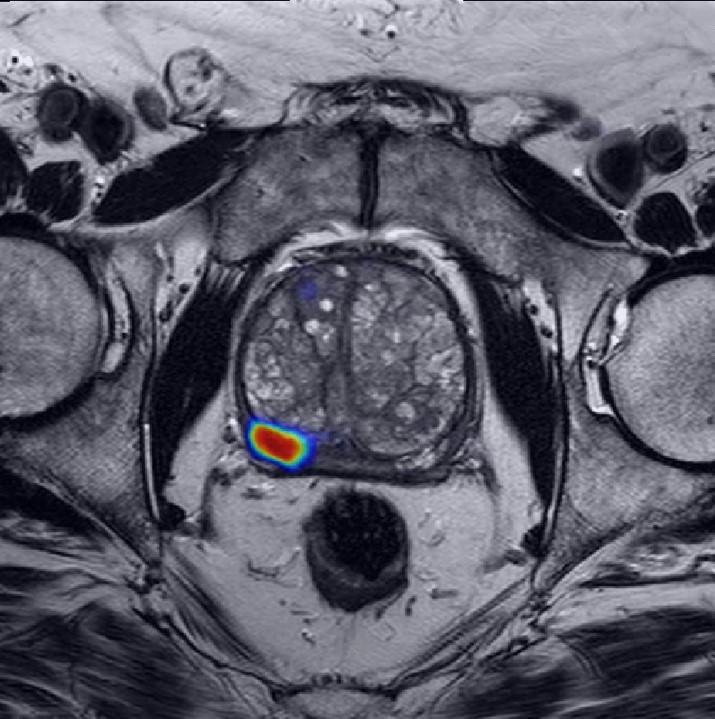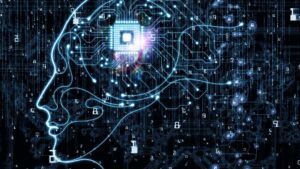Researchers are using machine learning to build tools in the realm of cancer detection and diagnosing, potentially catching tumors or lesions that doctors could miss, and AI is also being used to help treat patients or communicate with them about their cancer treatments.
Role Of Artificial Intelligence In Cancer Diagnosis
Artificial intelligence is revolutionizing cancer diagnosis by using machine learning to enhance detection and diagnostics, potentially identifying tumors or lesions missed by doctors. AI is also helping in patient treatment and communication by addressing the complexities of cancer treatment. Its role in detecting and treating cancer is a significant step towards improving healthcare outcomes.
H3: AI Tools for Cancer Detection Artificial intelligence (AI) is revolutionizing the field of cancer diagnosis with its advanced tools and capabilities. AI-powered technologies are capable of analyzing complex medical data, assisting doctors in detecting cancer at an early stage when it is more treatable. These tools are designed to efficiently process massive amounts of patient data, including medical images, lab results, and patient history, using machine learning algorithms to identify patterns and abnormalities that may indicate the presence of cancer. With AI tools for cancer detection, physicians can enhance their diagnostic accuracy and make more informed decisions for their patients. Table: | AI Tools for Cancer Detection | |——————————| | – Machine learning algorithms | | – Data mining techniques | | – Deep learning neural networks | | – Computer-aided detection systems | | – Pattern recognition algorithms | H3: AI’s Potential in Improving Cancer Screening Cancer screening is a crucial aspect of early detection and prevention, and artificial intelligence has the potential to transform the current screening methods. AI algorithms can analyze medical images, such as mammograms, CT scans, and MRIs, to identify suspicious lesions or tumors that may be missed by human observers. This technology enables radiologists to enhance their accuracy and efficiency in interpreting images, leading to more accurate and timely cancer diagnoses. Moreover, AI can reduce the number of false-positive screenings by distinguishing benign abnormalities from potentially malignant ones, minimizing unnecessary invasive procedures and patient anxiety. H3: Machine Learning and AI in Cancer Prognosis Machine learning, a subset of AI, has proven to be highly effective in predicting various types of cancers and their outcomes. By analyzing large datasets of patient records, genomic data, and treatment outcomes, machine learning algorithms can identify patterns and factors that contribute to the prognosis of specific cancers. This information can help healthcare professionals develop personalized treatment plans tailored to each patient’s unique characteristics, increasing the chances of successful outcomes. Additionally, machine learning can aid in predicting treatment responses, potential complications, and overall survival rates, enabling clinicians to make more informed decisions about intervention strategies. In conclusion, the role of artificial intelligence in cancer diagnosis is expanding rapidly, with AI tools for cancer detection improving diagnostic accuracy and efficiency. AI’s potential in improving cancer screening methods can enhance early detection rates and reduce false-positive results. Furthermore, machine learning algorithms contribute to better cancer prognosis by predicting outcomes and optimizing personalized treatment plans. With continuous advancements in artificial intelligence, we can expect significant progress in the fight against cancer and better outcomes for patients.Ai In Cancer Treatment And Communication
Artificial intelligence (AI) has revolutionized many industries, and healthcare is no exception. In the field of oncology, AI is being increasingly utilized to improve both cancer treatment and communication with patients. The applications of AI in cancer care are extensive, ranging from assisting in diagnosis to enhancing patient support. In this article, we will explore the various ways in which AI is being harnessed to see cancer in new and innovative ways.
Ai Applications In Oncology Treatment
One of the key areas where AI is making a significant impact is in oncology treatment. AI algorithms can analyze vast amounts of medical data, including patient history, imaging scans, and genomic profiles, to help physicians in formulating personalized treatment plans. By incorporating machine learning, these algorithms continuously improve their accuracy and efficiency, enabling oncologists to make more informed decisions regarding treatment options. AI can also assist in predicting treatment outcomes, identifying potential side effects, and monitoring treatment response. Such AI-powered technologies have the potential to revolutionize cancer treatment and improve patient outcomes.
Enhanced Patient Communication And Support
Effective communication is crucial in cancer care, as patients often face complex treatment decisions and have numerous questions and concerns. AI can help bridge the gap by providing enhanced patient communication and support. Chatbots powered by AI can assist patients by answering their queries, providing information about their diagnosis or treatment, and offering emotional support. These AI-driven chatbots can be available 24/7, ensuring that patients have access to reliable and timely assistance whenever they need it. Moreover, AI tools can analyze patient data, such as demographic information and treatment preferences, to deliver personalized communication and support, catered to the individual needs of each patient.
Future Implications For Ai In Cancer Care
The potential of AI in cancer care goes far beyond its current applications. As technology continues to evolve, there are exciting possibilities on the horizon. For instance, AI algorithms could be utilized to predict cancer risk based on genetic information and lifestyle factors, leading to early interventions and preventive measures. AI could also play a vital role in clinical trials, helping to identify suitable candidates and optimizing trial design. Furthermore, AI-powered imaging analysis and pathology systems could improve the accuracy and efficiency of cancer diagnosis, leading to earlier detection and treatment initiation. The future implications of AI in cancer care are vast and hold promise for transforming the landscape of cancer treatment and patient care.
Emerging Technologies In Cancer Detection
Can Artificial Intelligence revolutionize cancer detection? Researchers are exploring the potential of using machine-learning to develop tools that can detect tumors or lesions that may be missed by doctors. AI is also being utilized to aid in patient treatment and enhance communication surrounding complex cancer treatment processes.
As the field of medical technology continues to advance, emerging technologies are revolutionizing the way we detect and diagnose cancer. These innovative tools are not only improving early detection rates but also helping doctors make more accurate diagnoses for better treatment outcomes. Among the cutting-edge technologies, static droplet microfluidic devices, AI-assisted CT scans, and recent advances in AI-driven cancer diagnosis tools are playing a significant role in reshaping the future of cancer detection.
Static Droplet Microfluidic Device For Tumor Detection
One of the newest technologies in cancer detection is the static droplet microfluidic device. This device utilizes a unique metabolic signature of cancer to differentiate tumor cells from normal blood cells. By rapidly detecting circulating tumor cells that have entered the bloodstream, this device enables early detection and monitoring of tumor progression.
Using the HTML syntax, the code implementation for this heading would be Static Droplet Microfluidic Device for Tumor Detection
Ai’s Role In Distinguishing Cancerous Changes On Ct Scans
Artificial intelligence (AI) is making significant strides in the field of cancer detection by assisting in the analysis of medical imaging data, such as CT scans. Through advanced algorithms and machine learning techniques, AI can identify and distinguish cancerous changes in images with higher accuracy and efficiency than ever before. This technology empowers radiologists to make more precise diagnoses, leading to timely and effective treatment for patients.
Using the HTML syntax, the code implementation for this heading would be AI's Role in Distinguishing Cancerous Changes on CT Scans
Recent Advances In Ai-driven Cancer Diagnosis Tools
Recent advancements in AI-driven cancer diagnosis tools have revolutionized the way cancers are detected and diagnosed. These tools utilize machine learning algorithms to analyze large amounts of patient data, including medical records, imaging results, and genetic information, to provide accurate and personalized cancer diagnoses. By combining the power of AI with medical expertise, these tools are improving detection rates, reducing false positives, and ultimately leading to better treatment outcomes.
Using the HTML syntax, the code implementation for this heading would be Recent Advances in AI-driven Cancer Diagnosis Tools

Credit: www.nytimes.com
Frequently Asked Questions Of Can Artificial Intelligence Help See Cancer In New Ways?
Can Artificial Intelligence Help See Cancer In New And Better Ways?
Artificial intelligence can help detect and diagnose cancer, potentially catching tumors that doctors might miss. It is also being used to assist in treating patients and communicating about their cancer treatments. Ultimately, AI could have a significant impact on curing cancer and advancing healthcare overall.
AI can help improve cancer detection rates, reduce false-positive screens, and predict various types of cancer. It may also aid in distinguishing between cancerous and noncancerous changes on CT scans and detecting breast cancer in mammogram scans.
Can Ai Find The Cure To Cancer?
AI is being used to detect and diagnose cancer, potentially finding tumors or lesions that doctors could miss. It can also help treat patients and communicate with them about their cancer treatments. While AI may have a significant impact on curing cancer, it is still a work in progress.
What Is The New Technology For Cancer Detection?
New technology for cancer detection includes machine learning tools that can catch tumors or lesions missed by doctors. AI is also used to treat patients and communicate about cancer treatments. The Static Droplet Microfluidic device rapidly detects circulating tumor cells in the bloodstream, using a unique metabolic signature.
AI and machine learning have also been effective in predicting various types of cancer, such as breast, brain, lung, liver, and prostate cancer. AI has the potential to better distinguish lung cancer from noncancerous changes on CT scans. In breast cancer imaging, AI can detect mammographic abnormalities with accuracy comparable to radiologists.
What Is The Role Of Ai In Cancer Screening?
Artificial intelligence (AI) in cancer screening helps detect tumors and lesions that may be missed by doctors. It also aids in treating patients and communicating about their cancer treatments. AI has the potential to significantly impact cancer cure and advance healthcare overall.
ML, a subset of AI, is effective in predicting various types of cancer. AI can also better distinguish cancer from noncancerous changes on CT scans. In breast cancer imaging, AI can detect abnormalities with accuracy comparable to radiologists.
Conclusion
In the ever-evolving world of healthcare, the potential of artificial intelligence (AI) in revolutionizing cancer detection and treatment is becoming increasingly apparent. Researchers are utilizing machine learning techniques to create tools that can identify tumors and lesions that may go unnoticed by doctors.
AI is also assisting in patient care and communication, enabling more effective treatment and a better understanding of the complexities surrounding cancer treatments. With ongoing advancements and collaborations, AI has the potential to play a significant role in finding a cure for cancer and advancing the field of healthcare.





